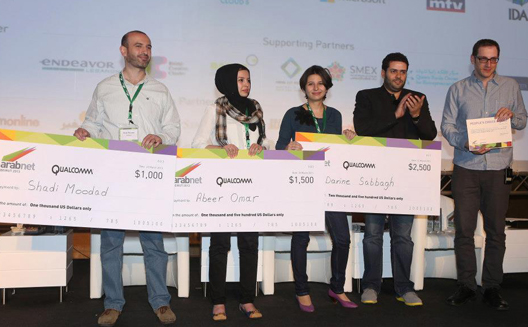How idea stage entrepreneurs can benefit from startup competitions


As entrepreneurship has boomed in the Middle East, startup and
business plan competitions have also sprouted up in the region,
after aspiring founders a chance to earn prizes and mentorship.
Many a startup has gotten on its feet after a startup competition,
but often, winners already have a viable product. And the
application process is daunting. So is it worth it to apply as an
idea phase entrepreneur?
I'd say yes. After entering three competitions in Lebanon this year
– Arabnet’s Ideathon, Bader’s StartUp Cup, and The Maurice Fadel
Prize – to pitch my new e-commerce startup, Ya Mammy, I learned
from each one. Here are 6 things I think startups have to gain from
the experience:
1) The courage to proceed
When I first imagined the concept of a peer-to-peer marketplace for parents, it came from a real need I was experiencing as a young parent. At first it seemed like a brilliant idea, but a few hours later, I didn’t think it was that great. But Arabnet’s Ideathon deadline was approaching, so I thought I would try my luck. I had nothing to lose. I entered my application from my cell phone while the baby was sleeping (and boy did it have typos!) and forgot about it, never sharing it with a soul. As the event approached, I wasn’t sure I’d really get the chance to build it. But come Arabnet, I gave my pitch and the tweets came rolling in, as young parents and parents-to-be told me what a great idea it was and encouraged me to really work on it.
2) Visibility & Exposure
It’s misleading to think that in simply pitching an idea you’ll
find investors leaping at the chance to fund you. That’s a
one-in-a-million case! Startups that are very successful now will
tell you how many investors they pitched to before finding the
right ones. What you’ll win in prize money from these competitions
won’t solve that problem. It will barely cover your startup costs,
but it’s a great incentive to get you going.
Regardless of whether you win or lose, your idea will gain
exposure, as these competitions usually have a strong PR arm and
several media outlets covering their every turn, so it never hurts
to have your company’s name mentioned. An added bonus is learning
how to pitch your brilliant idea so that you can later gain more
exposure.
3) Access to the network
The biggest win I got out from Arabnet’s Ideathon was not the prize money. It was getting connected to the person who is now mentoring me to make it happen. Without succeeding at the Ideathon, chances would have been very low that I would have launched my company. The people who attend these competitions are key stakeholders in the entrepreneurial ecosystem, and networking with them within the context of the competition, not just a social setting, is very helpful. Another benefit is access to potential clients. When I was part of Qordoba’s team at 2010’s Arabnet, May’s pitch and our presence on the ground helped us get the contacts of several key potential clients and other stakeholders.
4) Ability to grow your idea & capitalize on its potential
Often, startup competitions request business plans, projections, and many other tedious things, which can be time-consuming and distract from building your startup. At the very beginning, a five-year business plan seems like a castle in the sky; business plans in the lean startup world are considered outdated. However, working on them for a competition, with a mentor, may actually get you to define key elements like logistics, formulating correct fees and profit margins, marketing strategies. Focused discussions with competition judges, mentors, and organizers, all of whom are key industry movers, can give you the advice you need to get you moving in the right direction.
5) A push to progress
When you are working on your own idea, and not for a boss, one of the hardest things is to stay motivated and focused. A startup competition set up is ideal for that, because within very short deadlines, you are asked to demonstrate growth or a certain level of progress. At times these goals may be unrealistic, but the experience prepares you for the rhythm you’ll need when the startup is actually launched. It can also help you learn the lean startup approach, see what activities are most essential to execute, and how you can achieve milestones faster. In the absence of any formal entrepreneurship education, it’s an invaluable school on its own.
6) A few grains of salt to conclude
Not all is positive, there are a few challenges to keep in mind as you progress:
- Many of these competitions judge established startups and ideas
all together, which makes it hard to get a feel for who is at which
stage within different industries.
- Most competitions are very short, yet the main criterion is
often startup progress which may be difficult to achieve in such a
short period.
- Be prepared to spend a good amount of your time on five-year projections instead of building your product.
Still, next time you have a brilliant idea for a product or service, even if it seems half-mature to you, give it a shot, because you never know how it may blossom.


